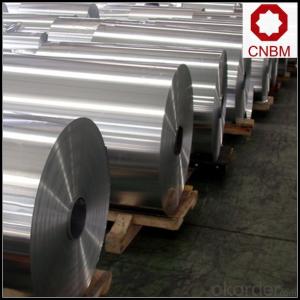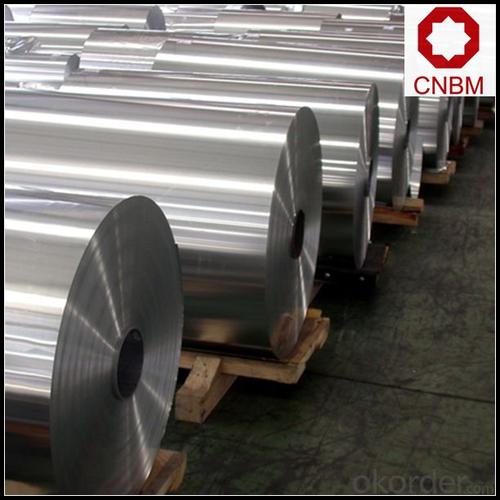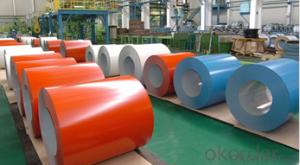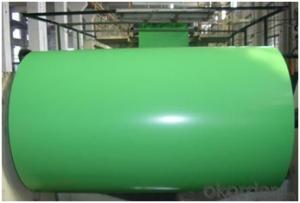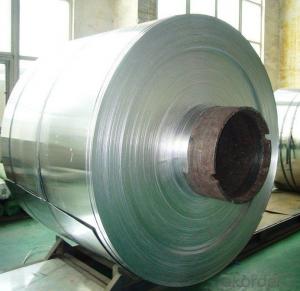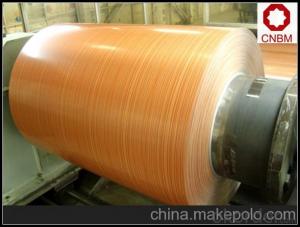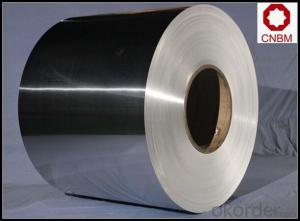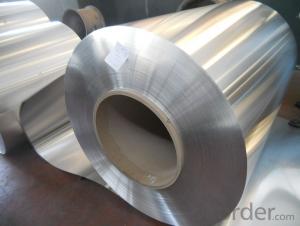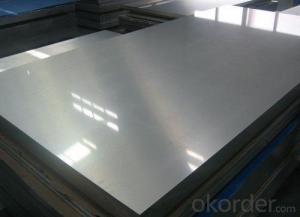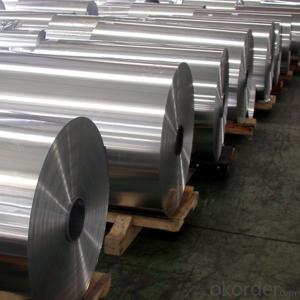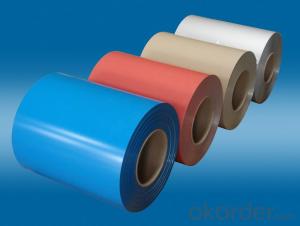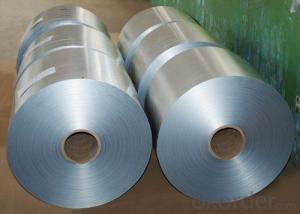5052 Mill Finish Mirror Aluminum Coil for Channel Letter
- Loading Port:
- Shanghai
- Payment Terms:
- TT OR LC
- Min Order Qty:
- 5 m.t.
- Supply Capability:
- 10000 m.t./month
OKorder Service Pledge
OKorder Financial Service
You Might Also Like
Specification
1. Specification of Mill Finish Mirror Aluminium Coil for Channel Letter
Thickness | 0.1mm-10mm |
Popular Thickness | 0.1mm/0.2mm/0.25mm/0.3mm/0.6mm/0.8mm/1.0mm/1.2mm/1.5mm/2.0mm/3.0mm... |
Width | 20mm-2500mm |
inner diameter | 505mm 508mm 605mm |
Material | 1050,1060,1070,1100,1200,3003,3004,3005,5052,5005,5754,5083 |
Temper | O,H12,H14,H16,H18,H22,H24,H26,H32,H34,H36,H38,H111,H112 |
Surface | mill finish |
Packing | Export standard wooden pallets |
Payment Terms | 100% irrevocable L/C at sight or 30% T/T in advance as deposit,70% balance against the B/L copy |
Minimum Order Quantity | 5000kg |
Delivery time | 15-25 days after receiving L/C or deposit |
Remark | Specific requirement of alloy grade, temper or specification can be discussed at your request |
2. Application of Mill Finish Mirror Aluminium Coil for Channel Letter
(1).Interior: wall cladding, ceilings, bathrooms, kitchens and balconies, shutters, doors...
(2).Exterior: wall cladding, facades, roofing, canopies, tunnels,column covers , renovations...
(3).Advertisement: display platforms, signboards, fascia, shop fronts...
3. Feature of PVDF Painted Aluminum Coil Competitive Price and BEST Manufacture and factor
*Such coil is specially designed to replace aluminum ingot, due to the high export tax of aluminum ingot, the coil has better price than ingot.
*This type of coil can fit customer's remelting furnace just like ingot, no need to make any change to the production line that was previously used for ingot. The standard coil size and weight is very suitable for the feed gate of furnace.
*This type of coil causes less material wastage than ingot when remelted.
*Our coil is made directly from ore, no need to go though the ingot making process, quality is much better than other suppliers who use ingot scrap to make coil.
Be free from Oil Stain, Dent, Inclusion, Scratches, Stain, Oxide Dicoloration, Breaks, Corrosion, Roll Marks, Dirt Streaks and other defect which will interfere with use
4. Certificate:
SGS and ROHS(if client request, paid by client), MTC(plant provided), Certificate of Origin(FORM A, FORM E, CO), Bureau Veritas and SGS (if client request, paid by client), CIQS certificate
5. Image of Mill Finish Mirror Aluminium Coil for Channel Letter
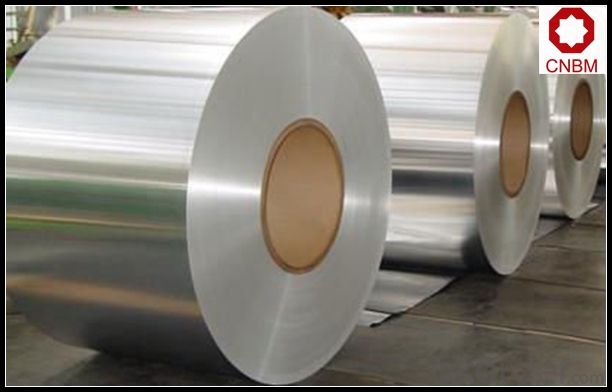
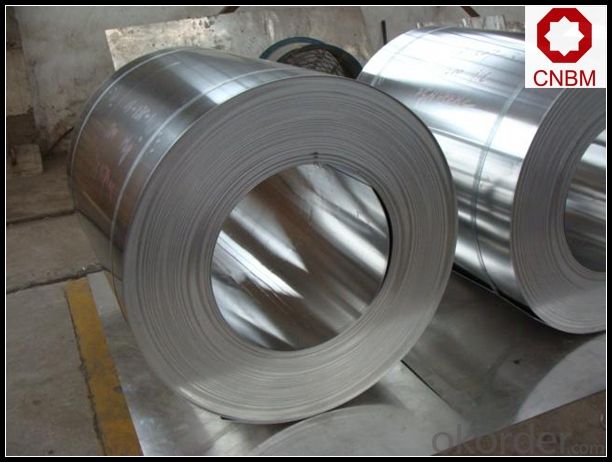
6. Package and shipping of Mill Finish Mirror Aluminium Coil for Channel Letter
eye to wall
eye to the wall
with wood pallet (wooded case also available)
7. FAQ
1) What is the delivery time?
Dpends on actual order, around 20 to 35 days
2)What is the QC system:
We have QC staff of 20 persons and advanced equipment, each production is with MTC traced from Aluminum ingot lot.
3) What market do you mainly sell to?
Australia, America, Asia, Middle East, Western Europe, Africa etc
- Q: What substances are used to make aluminum coils?
- <p>Aluminum coils are made from aluminum, a lightweight and malleable metal with the chemical symbol Al. They are typically produced from high-purity aluminum or aluminum alloys, which may include small amounts of other elements to enhance specific properties such as strength, durability, or resistance to corrosion. Pure aluminum is soft and lacks strength, so alloys are often used to improve these characteristics for various applications.</p>
- Q: Describe the various types of coatings applied to steel coils and their applications.
- <p>Steel coils can be coated with several different types of materials to enhance their properties for various applications. Common coatings include: 1) Galvanized coating, which provides corrosion resistance and is used in construction and automotive industries. 2) Pre-painted or color-coated steel, which is coated with organic paint and used for aesthetic purposes in buildings and appliances. 3) Aluminized coating, offering high-temperature resistance and used in heat-treating processes. 4) Zinc-iron alloy coating, which combines the benefits of zinc and iron for enhanced corrosion protection. 5) Organic coatings such as epoxy or polyurethane, used for specific chemical resistance or additional protection in harsh environments. Each type of coating is chosen based on the specific requirements of the end product and the environmental conditions it will face.</p>
- Q: This question asks for methods to determine the age of an aluminum coil, distinguishing between new and old.
- <p>To determine if an aluminum coil is new or old, you can look for several indicators: the surface condition, such as scratches or signs of wear; the quality of the protective coating, if any, which may degrade over time; the manufacturing date or batch number, if available; and the overall appearance and shine. New coils typically have a smooth, shiny surface with no significant scratches or dents, and a consistent protective coating. Old coils may show signs of oxidation, discoloration, or other forms of degradation. Additionally, testing the coil's physical properties, such as tensile strength, can provide clues about its age, as these properties can degrade over time.</p>
- Q: What is the typical warranty period for aluminum coils?
- The typical warranty period for aluminum coils can vary depending on the manufacturer and the specific product. However, in general, aluminum coils tend to have warranty periods ranging from 5 to 10 years. This means that during this time, the manufacturer will cover any defects or issues that may arise with the aluminum coils. It is important to note that some manufacturers may offer extended warranty options for an additional cost. Additionally, it is advisable to check the warranty terms and conditions provided by the manufacturer as they may have specific requirements or limitations for the warranty to be valid.
- Q: What are the different pre-treatment methods for aluminum coils?
- Aluminum coils can undergo various pre-treatment methods to prepare their surface for further processing or coating. These methods serve different purposes and can be chosen based on specific requirements. One pre-treatment method is degreasing, which eliminates oils or greases on the coil surface. Solvents or alkaline cleaners are used for degreasing, depending on the application's needs. Etching is another pre-treatment method that removes surface oxides or contaminants from the aluminum coils. This can be achieved through acidic solutions or mechanical techniques like sandblasting or brushing. Phosphating, a commonly used pre-treatment method, involves applying a phosphate coating to the coil surface. This coating enhances adhesion for subsequent coatings or paints and provides corrosion resistance. Conversion coating is a popular pre-treatment method that forms thin layers of inorganic compounds on the coil surface. These coatings improve adhesion for subsequent coatings or paints and offer corrosion resistance. Common conversion coatings for aluminum include chromate, chromate-free, or anodizing. To summarize, the pre-treatment methods for aluminum coils include degreasing, etching, phosphating, and conversion coating. Each method has a specific purpose in preparing the coil surface for further processing or coating, chosen based on the application's requirements.
- Q: Why does it take less energy to get aluminum metal from used cans than to get it directly from the ore?
- in order to extract the raw aluminum, you have to heat everything and melt it first, then remove the stuff that precipitates out as it cools or forms via chemical reaction with catalysts you introduce. With aluminum cans, you don't have to raise the temperature much above the melting point of aluminum, since it's already the substance in the can with the highest melting point. With aluminum ore, there can be anything in the ore with pretty much any melting point. In particular, if the ore contains an alloy of aluminum and a metal with a higher melting point than aluminum, then rest assured, you will have to raise the temperature of the ore above the melting point of aluminum in order to melt that alloy, In any case, because the maximum required temperature of the smelter needed to melt used aluminum cans is necessarily lower than the maximum temperature required to work with the ore, less energy is required to get aluminum from used cans than from ore.
- Q: Inquiry about the feasibility of using a laser for cutting aluminum coils.
- <p>Yes, you can use a laser to cut aluminum coils. Laser cutting is a versatile process that can be used on a variety of materials, including aluminum. However, it's important to note that the type of laser and the specific settings should be appropriate for aluminum. Fiber lasers or CO2 lasers are commonly used for metal cutting, including aluminum. The process requires careful control of the laser's power, speed, and focus to achieve clean and precise cuts. Additionally, because aluminum is a reflective metal, special considerations such as the use of a protective cover gas and proper nozzle management are necessary to prevent damage to the laser equipment and to ensure the quality of the cut.</p>
- Q: What are the common industry standards for aluminum coil specifications?
- The common industry standards for aluminum coil specifications include the Aluminum Association (AA) standards, ASTM International specifications, and the European Standards (EN) for aluminum coils. These standards typically cover dimensions, tolerances, mechanical properties, chemical composition, surface finish, and other technical requirements for aluminum coils used in various industries such as construction, automotive, aerospace, and electrical. Compliance with these standards ensures consistent quality and compatibility with industry applications.
- Q: Can aluminum coils be custom-made to specific requirements?
- Yes, aluminum coils can be custom-made to specific requirements. Aluminum coils are versatile and can be tailored to meet a wide range of specifications and applications. Manufacturers can customize the dimensions, thickness, width, and length of the coil to accommodate specific requirements. Additionally, various surface finishes, such as embossed patterns or coatings, can be applied to enhance the appearance or improve functionality. Customization of aluminum coils allows for precise matching of specific needs in industries such as construction, transportation, aerospace, and many others.
- Q: What are the common quality control measures for aluminum coil manufacturing?
- There are several common quality control measures that are implemented in the aluminum coil manufacturing process to ensure the production of high-quality products. 1. Raw material inspection: The first step in quality control is to thoroughly inspect the raw materials, including the aluminum alloy used for the coil. This involves checking for any impurities or defects that could affect the final product. 2. Dimensional inspection: Throughout the manufacturing process, dimensional inspection is carried out to ensure that the aluminum coils meet the required specifications. This includes measuring the thickness, width, length, and diameter of the coils. 3. Surface inspection: The surface of the aluminum coils is inspected to detect any visual defects such as scratches, dents, or marks. This can be done visually or through the use of specialized equipment such as cameras or scanners. 4. Mechanical properties testing: Mechanical properties such as tensile strength, yield strength, elongation, and hardness are crucial in determining the quality of aluminum coils. Testing these properties ensures that the coils meet the necessary strength and performance requirements. 5. Chemical composition analysis: Aluminum alloys used for manufacturing coils must meet specific chemical composition standards. Regular analysis of the chemical composition is done to verify that the alloy meets these standards and to identify any deviations that may affect the quality of the final product. 6. Coating inspection: If the aluminum coils are coated or treated with a protective layer, the coating is inspected for uniformity, adhesion, and thickness. This ensures that the coils have proper corrosion resistance and aesthetic appearance. 7. Packaging inspection: Before the final products are shipped, packaging inspection is conducted to ensure that the coils are properly packed, labeled, and protected during transportation. This includes checking for any damage or contamination that may have occurred during the packaging process. Implementing these quality control measures helps to identify and rectify any defects or deviations in the manufacturing process, ensuring that the aluminum coils meet the required standards and customer expectations.
Send your message to us
5052 Mill Finish Mirror Aluminum Coil for Channel Letter
- Loading Port:
- Shanghai
- Payment Terms:
- TT OR LC
- Min Order Qty:
- 5 m.t.
- Supply Capability:
- 10000 m.t./month
OKorder Service Pledge
OKorder Financial Service
Similar products
Hot products
Hot Searches
Related keywords
